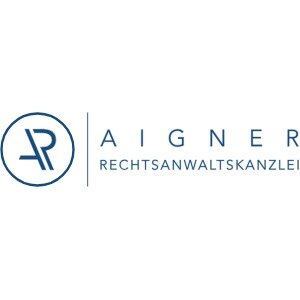Best Private Equity Lawyers in Austria
Share your needs with us, get contacted by law firms.
Free. Takes 2 min.
Or refine your search by selecting a city:
List of the best lawyers in Austria
About Private Equity Law in Austria
Private equity in Austria refers to the investment of capital in private companies, or in public companies with the intention to take them private. This capital is often used to support growth, restructurings, or acquisitions. Private equity transactions are governed by Austrian corporate law, contract law, and a robust regulatory framework intended to ensure transparency, investor protection, and fair competition. Austria offers a stable legal environment and is considered attractive for both local and international private equity investors.
Why You May Need a Lawyer
Private equity transactions are complex and often involve significant legal and financial risks. Engaging a lawyer with expertise in private equity can help you in several common situations:
- Structuring and setting up private equity funds
- Negotiating and drafting investment and acquisition agreements
- Conducting legal due diligence on target companies
- Navigating regulatory and compliance requirements
- Resolving disputes between investors, founders, or other stakeholders
- Managing cross-border transactions and understanding local variations
- Exiting investments via public offerings or private sales
- Understanding tax implications and optimizing deal structures
- Advising on employee participation programs or management incentives
- Ensuring anti-money laundering and anti-corruption compliance
Local Laws Overview
The main body of law governing private equity in Austria includes the Austrian Commercial Code (Unternehmensgesetzbuch), the Company Act (GmbHG and AktG), financial regulations provided by the Financial Market Authority (FMA), competition law, and tax law. Key points include:
- Private equity investments are often structured as limited partnerships or corporate entities for liability and tax efficiency.
- The Financial Market Authority regulates investment funds and certain private equity structures that target the public or certain groups of investors.
- Takeover bids for public companies are governed by the Austrian Takeover Act, ensuring fairness and transparency.
- Antitrust filings may be required before large transactions if specific turnover thresholds are met.
- There are specific rules regarding shareholder agreements, veto rights, and the protection of minority shareholders.
- Austrian law imposes strict due diligence and anti-money laundering procedures in relation to capital inflows and investor identification.
- Taxation for private equity structures can involve corporate income tax, capital gains tax, and considerations related to double taxation treaties.
Frequently Asked Questions
What is private equity and how does it work in Austria?
Private equity refers to investing in unlisted companies or buying out public companies to implement strategic or operational changes. In Austria, private equity investments typically involve acquiring significant stakes in companies to drive growth, often through a combination of equity and debt financing.
Who regulates private equity funds in Austria?
The Austrian Financial Market Authority (FMA) oversees the regulation of investment funds, including certain private equity funds, particularly those marketed to the public or to specific categories of investors.
Do private equity investments require regulatory approval in Austria?
Some private equity investments may require approval, such as transactions involving regulated sectors, cross-border investments, or those exceeding turnover thresholds that trigger competition filings.
How are private equity funds typically structured in Austria?
Funds are commonly structured as limited partnerships (Kommanditgesellschaft, KG) or corporate entities to manage liability, taxation, and governance matters efficiently.
What are the main stages of a private equity transaction?
The typical stages include deal sourcing, due diligence, negotiation of agreements, regulatory filings or approvals, completion, and post-investment management, followed by exit planning.
Is due diligence mandatory for private equity investments?
While not legally mandatory, comprehensive legal due diligence is strongly recommended to identify risks, validate business claims, and ensure regulatory compliance before committing capital.
What laws protect minority shareholders in a private equity transaction?
Austrian corporate law provides certain protections, including rules on disclosure, voting rights, and specific agreements that can entrench minority protections in the company’s articles or shareholder agreements.
Are there restrictions on foreign investors in Austrian private equity?
Foreign investors are generally welcome, but some sectors (such as defense, energy, critical infrastructure) require additional approvals under foreign investment control laws.
How is private equity income taxed in Austria?
Taxation depends on the structure but can involve corporate income tax, capital gains tax, and potential withholding taxes. Austria has a network of double taxation treaties that may offer relief.
What should I consider before entering a private equity deal in Austria?
You should carefully review regulatory requirements, perform thorough due diligence, assess the exit strategy, understand the company’s financials, and ensure robust contracts are in place. Legal advice is critical at each step.
Additional Resources
For those seeking more information or support about private equity in Austria, the following resources may be helpful:
- Austrian Financial Market Authority (FMA) for regulatory guidance and updates
- Austrian Private Equity and Venture Capital Organisation (AVCO) for networking, events, and industry standards
- Federal Ministry of Finance (BMF) for information on taxation and compliance
- Chamber of Commerce (Wirtschaftskammer Österreich, WKO) for business support and legal information
- European Private Equity & Venture Capital Association (Invest Europe) for policy updates and best practices
Next Steps
If you are considering a private equity investment or require legal advice in Austria, it is highly recommended to consult with a lawyer specializing in private equity and corporate transactions. Gather relevant information about your investment plans, target companies, or any existing legal documents. Reach out to a local law firm or one of the professional bodies listed under additional resources. Legal experts can assist you with due diligence, contract drafting, regulatory compliance, and strategic advice to protect your interests and ensure the success of your private equity activities in Austria.
Lawzana helps you find the best lawyers and law firms in Austria through a curated and pre-screened list of qualified legal professionals. Our platform offers rankings and detailed profiles of attorneys and law firms, allowing you to compare based on practice areas, including Private Equity, experience, and client feedback.
Each profile includes a description of the firm's areas of practice, client reviews, team members and partners, year of establishment, spoken languages, office locations, contact information, social media presence, and any published articles or resources. Most firms on our platform speak English and are experienced in both local and international legal matters.
Get a quote from top-rated law firms in Austria — quickly, securely, and without unnecessary hassle.
Disclaimer:
The information provided on this page is for general informational purposes only and does not constitute legal advice. While we strive to ensure the accuracy and relevance of the content, legal information may change over time, and interpretations of the law can vary. You should always consult with a qualified legal professional for advice specific to your situation.
We disclaim all liability for actions taken or not taken based on the content of this page. If you believe any information is incorrect or outdated, please contact us, and we will review and update it where appropriate.
Browse private equity law firms by city in Austria
Refine your search by selecting a city.














